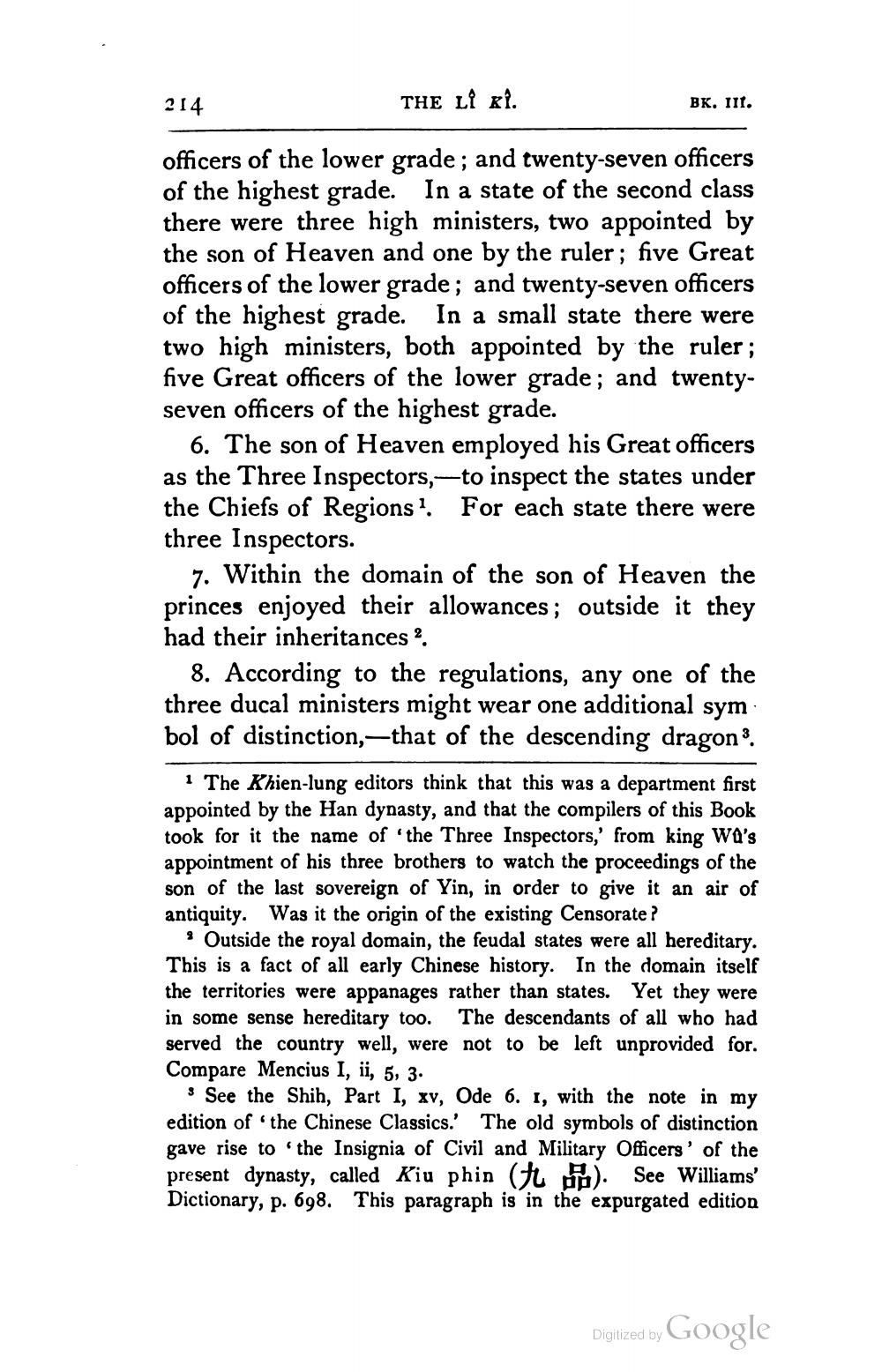________________
THE LI KI.
officers of the lower grade; and twenty-seven officers of the highest grade. In a state of the second class there were three high ministers, two appointed by the son of Heaven and one by the ruler; five Great officers of the lower grade; and twenty-seven officers of the highest grade. In a small state there were two high ministers, both appointed by the ruler; five Great officers of the lower grade; and twentyseven officers of the highest grade.
214
BK. III.
6. The son of Heaven employed his Great officers as the Three Inspectors,-to inspect the states under the Chiefs of Regions'. For each state there were three Inspectors.
7. Within the domain of the son of Heaven the princes enjoyed their allowances; outside it they had their inheritances 2.
8. According to the regulations, any one of the three ducal ministers might wear one additional sym bol of distinction,-that of the descending dragon3.
1 The Khien-lung editors think that this was a department first appointed by the Han dynasty, and that the compilers of this Book took for it the name of 'the Three Inspectors,' from king Wu's appointment of his three brothers to watch the proceedings of the son of the last sovereign of Yin, in order to give it an air of antiquity. Was it the origin of the existing Censorate?
Outside the royal domain, the feudal states were all hereditary. This is a fact of all early Chinese history. In the domain itself the territories were appanages rather than states. Yet they were in some sense hereditary too. The descendants of all who had served the country well, were not to be left unprovided for. Compare Mencius I, ii, 5, 3.
See the Shih, Part I, xv, Ode 6. 1, with the note in my edition of the Chinese Classics.' The old symbols of distinction gave rise to the Insignia of Civil and Military Officers' of the present dynasty, called Kiu phin (). See Williams' Dictionary, p. 698. This paragraph is in the expurgated edition
Digitized by
Google




